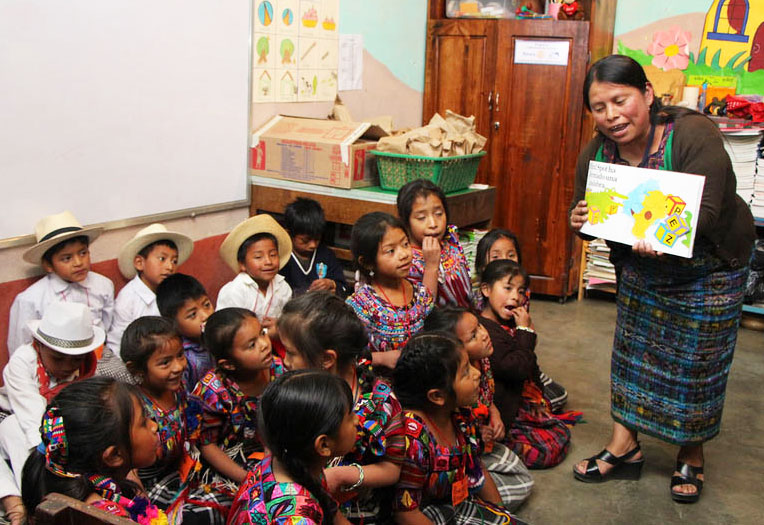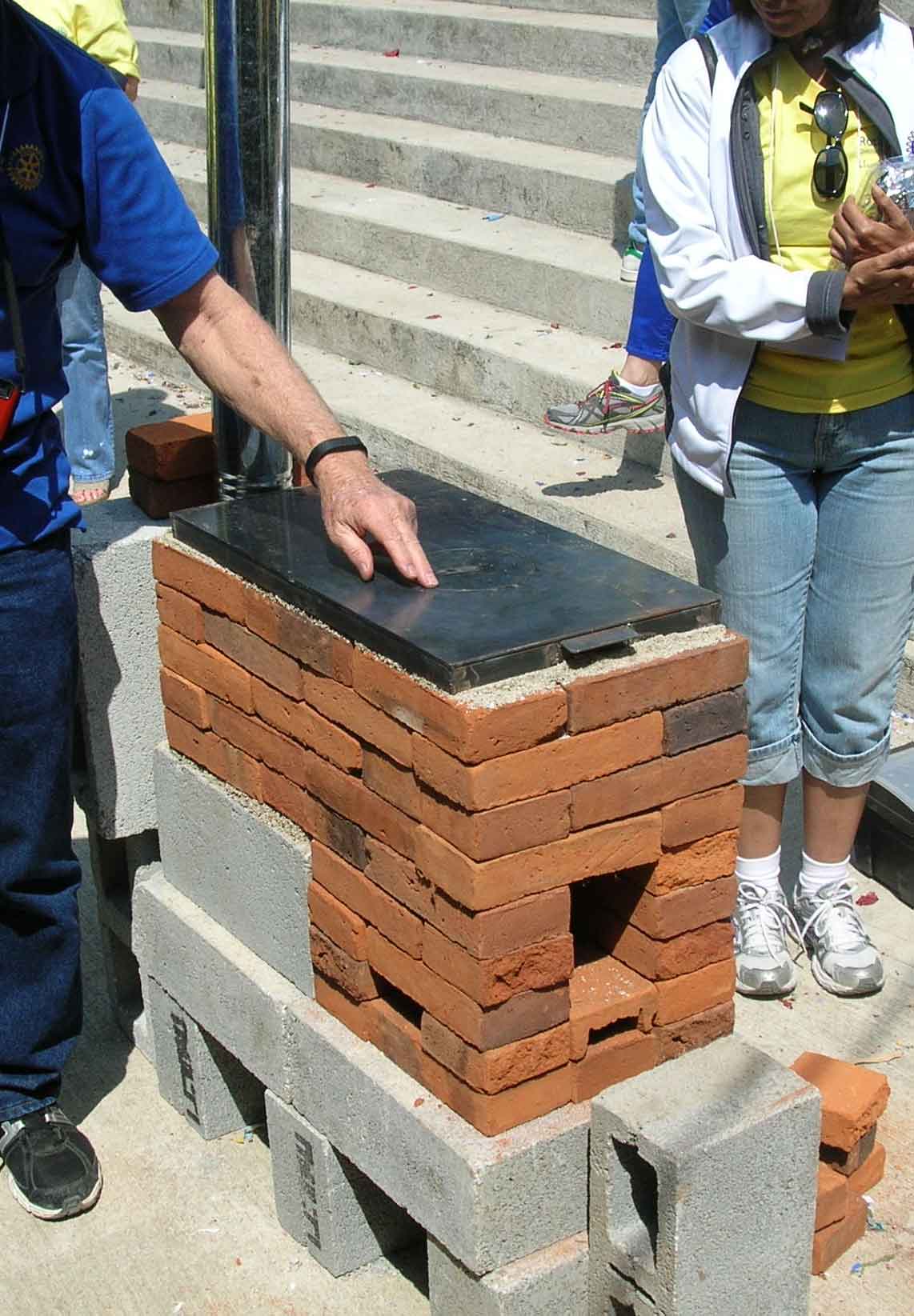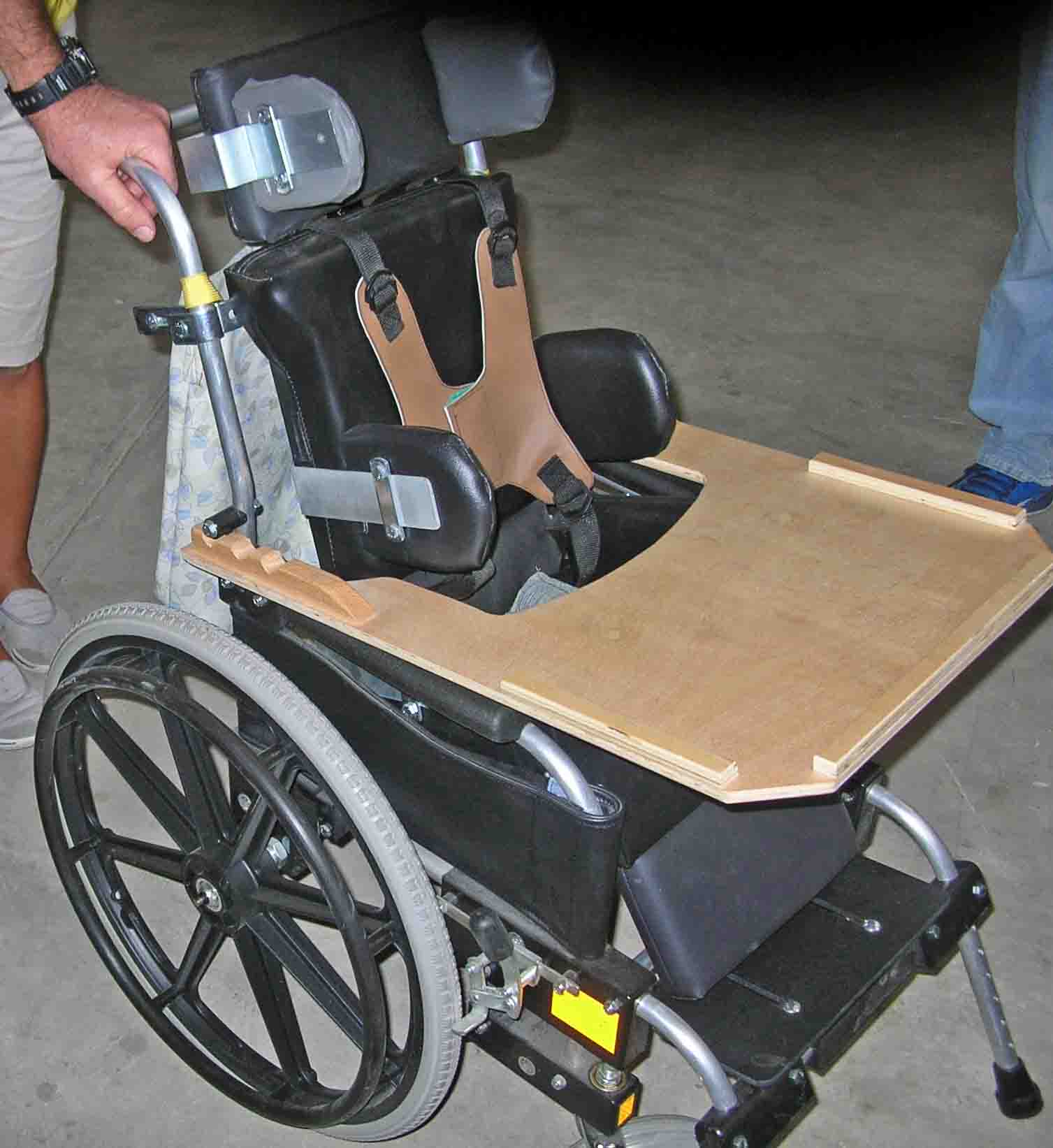District Guatemala Humanitarian Trip
Posted by Wes Bradford
on Mar 24, 2015



President Roger Schamp and Wes and Judy Bradford presented their experiences in the District 5280 trip to Guatemala District 4250 on February 5-9, in the old colonial capital, Antigua. Roger attended a meeting of Canadian and Washington State Rotarians who were discussing their ongoing projects in Guatemala, including a self-sustaining micro loan system.
Our Rotarian projects there are funded by a Global Grant of $483,000 including funds from both Districts and the Rotary Foundation. The “Guatemala Literacy Project” provides Mayan schools with textbooks. Small charges to the parents each year provide enough money to replace the books in 4-5 years. Teaching without books is especially difficult if the Mayan children are not fluent in Spanish. Many more schools are in need, and Guatemala has one of the lowest literacy rates in the Americas. We brought a carton of wrist bracelets (donated by Trixie and Jim Gamble of our Club) to distribute to eager children. We also delivered school backpacks and supplies, and there never seemed to be enough for everyone.
On February 7, some Rotarians took a trip to Tikal, a prominent ancient Mayan site. Soon, ash began falling over Antigua, from a new eruption by the nearby Volcano Fuego, which closed the airport and stranded the Tikal visitors 200 miles away. (Next day, after staying in a nice hotel on the shore of a crocodile-infested lake, a chartered plane flew these Tikal refugees to a naval base on the Pacific coast, from which they were bussed back to Antigua.)
Having missed the Tikal excitement, Roger attended a sumptuous dinner at a $10 million mansion, and the next day went to beautiful Lake Atitlan to visit an Eco-Stove project for people living in poverty. A thousand of these stoves have been made, starting with a small concrete foundation, and then easily constructed with fire bricks and pumice blocks, and finally an iron stove-top with a small stovepipe chimney. This stove requires far less wood for cooking, which helps reduce denuding the surrounding forests where increasing erosion is polluting the lake and destroying cropland. It also reduces indoor air pollution and minimizes the likelihood of small children’s burn-injuries.
They visited the Pediatric Wheelchair Project, where custom-built wheelchairs are designed and made so they can be adjusted during a handicapped child’s growth. Some of the Rotarians played wheelchair basketball against the local wheelchair team (and lost).
The Moore Pediatric Surgical Center in Guatemala City was begun in 2011 and performs over 1000 surgeries per year on children. Our District Global Grant is helping to update their x-ray imaging equipment. They have developed and are producing a nutritional formula called Mani+, a ready-to-use 40-gram daily dose costing 35 cents, to reduce Guatemala’s high rate of early childhood malnutrition.
Roger reconnected with “13 Threads”, a nonprofit organization he had seen previously that is helping Mayan women weavers to get fair prices for their handicrafts while preserving their culture. This trip was a great cultural experience of "Rotary Moments".